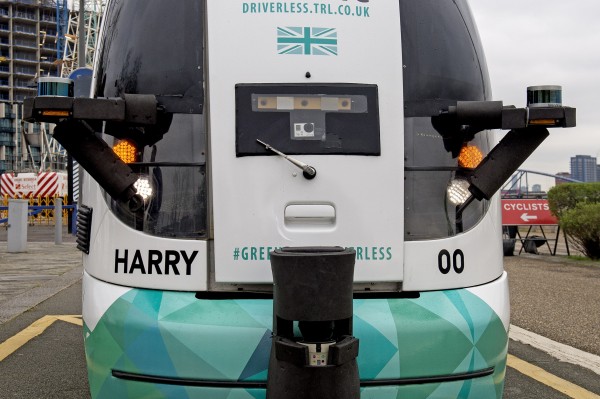Computer chip giant reveals autonomous car technology
Graphics company Nvidia says its chip can handle 320 trillion operations per second

A new artificial intelligence system built to power self-driving vehicles has been revealed.
Computer graphics chip-maker Nvidia has revealed its new Pegasus system, which it says is capable of handling level five driverless vehicles – those that require no input from a human.
The company, which is based in the ‘Silicon Valley’ area of San Francisco, claims the chip can handle 320 trillion operations per second, making it 10 times more powerful than the system it replaces.

Nvidia says it has 225 partners in the automotive industry, with 25 of them using the company’s technology to build fully autonomous vehicles. Currently, the companies are using traditional cars with boots filled with computers that analyse their surroundings to learn how to behave in certain situations.
Vehicles are covered in cameras and sensors that provide a 360-degree image of the environment, which the car must understand to be able to safely travel to its destination.
Jensen Heung, founder and CEO of Nvidia, said: “Creating a fully self-driving car is one of society’s most important endeavours – and one of the most challenging to deliver.
“The breakthrough AI computing performance and efficiency of Pegasus is crucial for the industry to realise this vision.
“Driverless cars will enable new ride- and car-sharing services. New types of cars will be invented, resembling offices, living rooms or hotel rooms on wheels. Travellers will simply order up the type of vehicle they want based on their destination and activities planned along the way. The future of society will be reshaped.”
One of the companies using the Pegasus system is TuSimple, a Chinese company that Nvidia invested in earlier this year as part of a £15 million funding round to build fully autonomous trucks.





